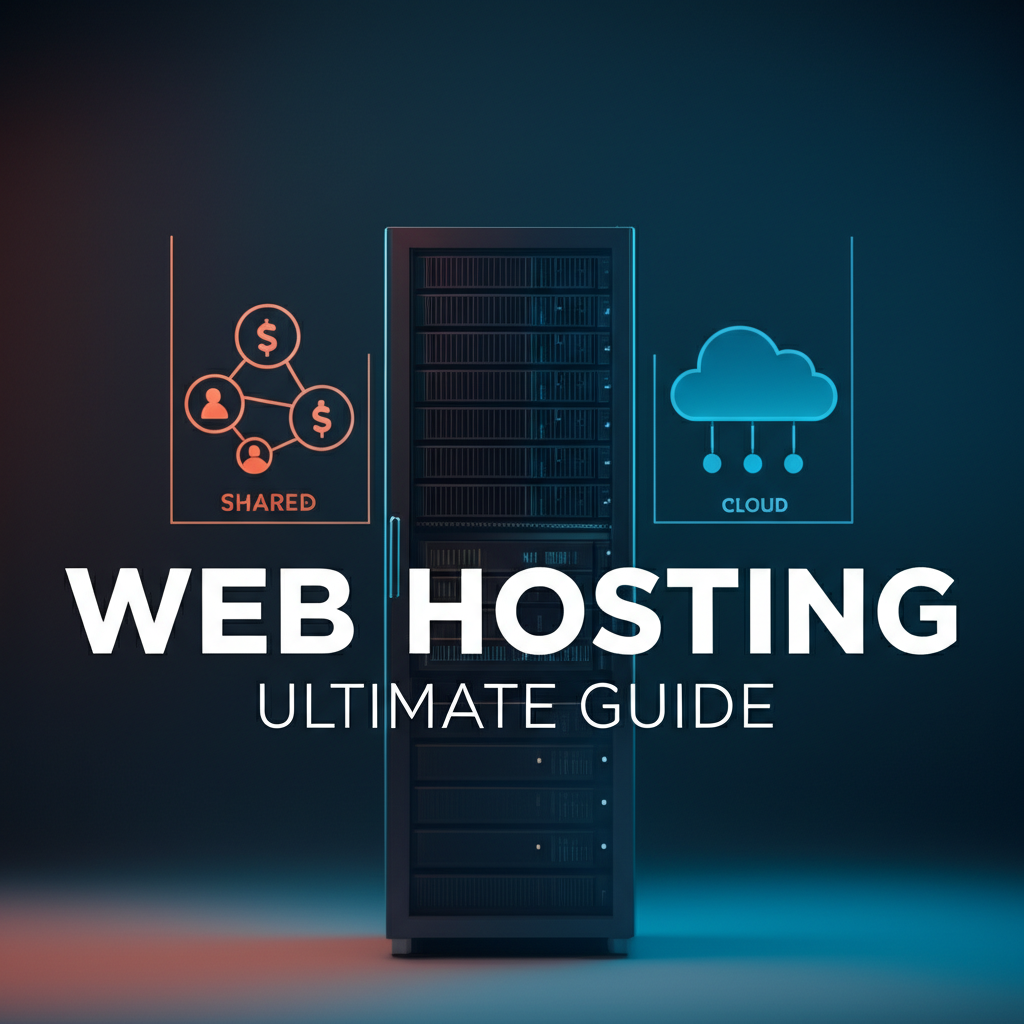- Understanding the Different Types of Web Hosting
- Shared Hosting: A Budget-Friendly Starting Point
- VPS Hosting: The Balance of Power and Affordability
- Cloud Hosting: The Scalable Powerhouse
- Choosing the Right Web Hosting for Your Needs
- Making the Final Decision: Key Takeaways
Web Hosting: Ultimate Guide (Shared, VPS, Cloud)
Web hosting is the foundation of every website’s online presence. It’s the service that provides the server space and technologies needed to store website files and make them accessible to visitors over the internet. Choosing the right web hosting is crucial for website performance, security, and scalability. This comprehensive guide breaks down the different types of web hosting – shared, VPS, and cloud – to help you make an informed decision.
Understanding the Different Types of Web Hosting

Choosing a web hosting plan can feel overwhelming with the multitude of options available. Understanding the core differences between shared, VPS, and cloud hosting will significantly simplify the selection process.
Shared Hosting: A Budget-Friendly Starting Point
Shared hosting is the most economical option, ideal for beginners and websites with low to moderate traffic. Imagine an apartment building – shared hosting is like sharing an apartment with multiple tenants. All websites on a shared server share the same resources, including CPU, RAM, and bandwidth.
Pros:
Cost-effective: Shared hosting plans are typically the cheapest option.
Ease of Use: Most shared hosting providers offer user-friendly control panels and require minimal technical knowledge.
Managed Services: Many shared hosting plans include managed services like automatic backups and software updates.
Cons:
Limited Resources: Performance can be affected by other websites on the same server, especially during traffic spikes.
Security Concerns: A security breach on one website on the shared server can potentially affect others.
Less Control: Customization options are limited compared to other hosting types.
VPS Hosting: The Balance of Power and Affordability
VPS (Virtual Private Server) hosting offers a middle ground between shared and dedicated hosting. Think of it as owning a condo in a building – you have your own dedicated space and resources within a larger infrastructure. A single physical server is divided into multiple virtual servers, each with its own allocated resources.
Pros:
Enhanced Performance: VPS hosting offers better performance and stability compared to shared hosting due to dedicated resources.
Increased Security: Isolation from other users on the same server enhances security.
Greater Control: Users have more control over server configurations and can install custom software.
Scalability: Resources can be easily scaled up or down as needed.
Cons:
Higher Cost: VPS hosting is more expensive than shared hosting.
Requires Some Technical Knowledge: Managing a VPS server requires some technical expertise, although managed VPS options are available.
Cloud Hosting: The Scalable Powerhouse
Cloud hosting leverages the power of multiple interconnected servers to provide unparalleled scalability and reliability. Instead of relying on a single server, websites hosted on the cloud utilize resources from a vast network of servers. Think of it like having a team of movers instead of just one – you can move a much larger load much faster.
Pros:
High Scalability: Resources can be instantly scaled up or down based on real-time demand.
High Availability: Redundancy across multiple servers ensures high uptime and minimizes the risk of downtime.
Pay-as-you-go Pricing: Users only pay for the resources they consume.
Enhanced Security: Cloud hosting providers typically offer robust security measures.
Cons:
Cost Can Be Unpredictable: While scalable, costs can fluctuate based on resource usage.
Requires Technical Expertise: Managing cloud hosting can be complex and requires a good understanding of cloud technologies.
Choosing the Right Web Hosting for Your Needs
Selecting the appropriate web hosting type depends on various factors, including:
Website Traffic: For low-traffic websites, shared hosting is sufficient. As traffic grows, consider VPS or cloud hosting.
Budget: Shared hosting is the most budget-friendly, followed by VPS and then cloud hosting.
Technical Expertise: If you lack technical skills, consider managed hosting options for VPS and cloud.
Scalability Needs: Choose cloud hosting if you anticipate rapid growth and require high scalability.
* Security Requirements: If security is paramount, VPS or cloud hosting offer better isolation and security features.
Making the Final Decision: Key Takeaways
This guide has provided a comprehensive overview of the different types of web hosting. Remember to carefully weigh the pros and cons of each option and consider your specific needs before making a decision. Whether you’re starting a small blog or running a large e-commerce store, choosing the right web hosting is crucial for online success. Investing time in researching and understanding your options will pay dividends in the long run. Don’t hesitate to contact hosting providers directly to discuss your requirements and find the perfect solution for your website.











Leave a Reply